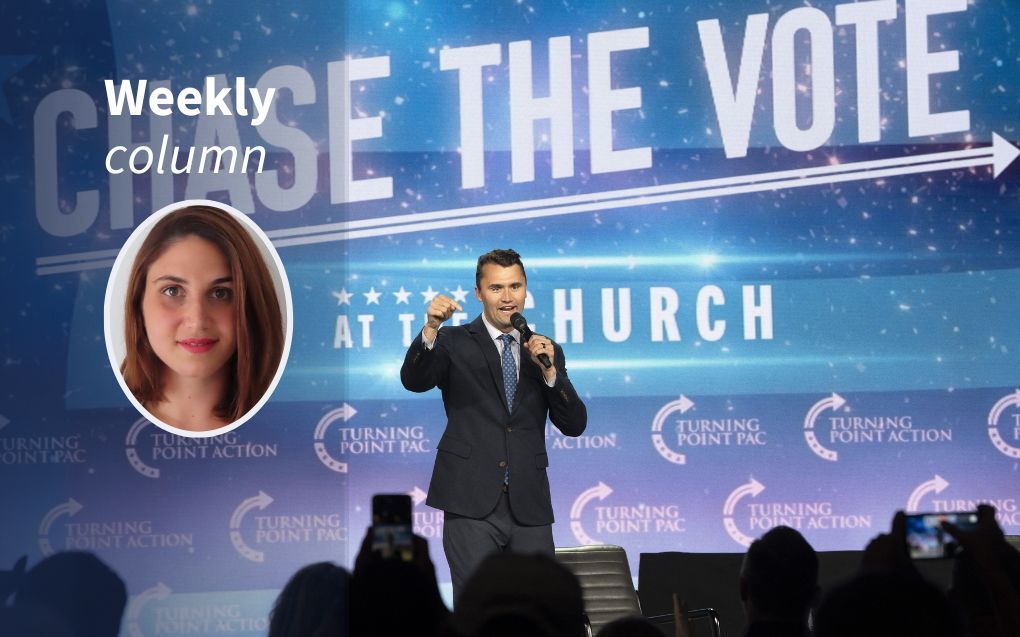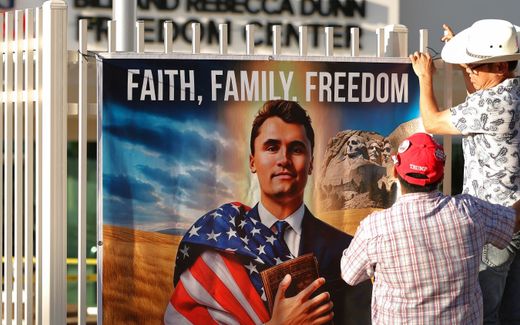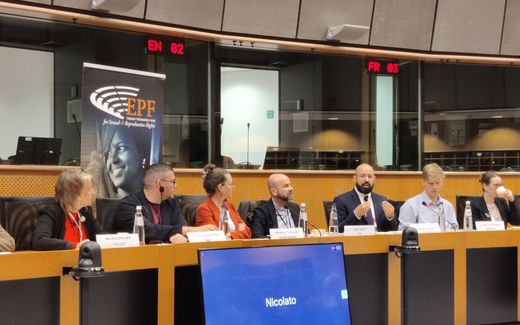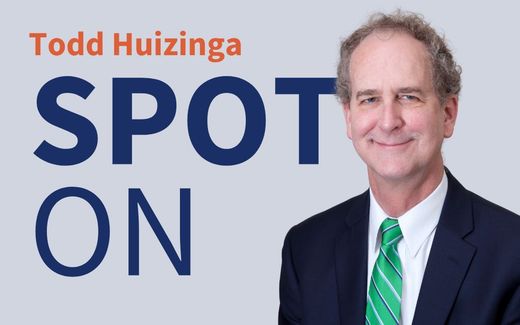Charlie Kirk’s death confronts Christians: Politics or faith first?

Charlie Kirk speaking in a church in September 2024. Photo AFP, Rebecca Noble, Canva
Christian Life
This summer, my husband and I decided to take part in the 37th edition of the Giornate Teologiche (Theological Days) in Padua. The theme immediately caught our attention: “The Politics of the Gospel.” Two days of in-depth study to reflect on the relationship between Evangelical faith and public engagement.
Stay up to date with Christian news in Europe? Sign up for CNE's newsletter.
We did not expect, however, that in those very days, the whole world would be debating the relationship between Evangelicals and politics, following the death of Charlie Kirk.
This was remarkable because Evangelicals usually view politics with disengagement, suspicion, and criticism, and they have no strong tradition of political involvement. And now, suddenly, it seemed that everybody was only talking about this.
The media treated the news as a national issue; right-wing politicians elevated Kirk as a conservative martyr, progressives viewed him as a symbol of the dangers of that ideology, and many Christians interpreted his death as martyrdom for the faith. In this confusing atmosphere, the conference presented a valuable opportunity for me to explore a deeper key to interpretation.
Nonconformist politics
When organising the 2025 Theological Days, the Institute for Evangelical Formation and Documentation (IFED) did not question whether politics could have anything to do with the Gospel. The institute believes that Jesus Christ is Lord over all of reality, and, therefore, also over the political sphere. However, because of Kirk’s death, a new question arose: what kind of politics emerges from the Gospel of God?
Understanding God’s will requires non-conformity to the existing patterns.
Our reflection was guided by the Scriptures, particularly by chapters 12 and 13 of the Letter to the Romans. Paul first speaks about the need for the renewal of believers’ minds and the transformation it entails. Understanding God’s will requires non-conformity to the existing patterns. It requires a new vision of the world, one that steps outside human categories and aligns itself with God’s will.
In politics, this means affirming that God does not belong to any faction or ideology created by man. Christians can and must engage politically on the basis of biblical ethics. There will be moments when their stances may appear conservative, and others when they may seem progressive. This is part of a nonconformist politics born out of the renewal of the mind in accordance with God’s will.
Divine law
Furthermore, a new society would be needed. The church of the Lord would represent it and soberly combine unity with diversity, while making Christian love the primary and concrete basis of public engagement.
From Romans 13:1–7, the delicate theme of authority in civil life was then addressed: not as a way to legitimise abuses, but to recognise that certain governing structures have a function given by God, even within human limitations. “Watchful submission” means that believers are obedient citizens in many cases, yet must always evaluate coherence with the Gospel and resist when human law conflicts with divine law.
Finally, Christians were called to a sober militancy — not ideological trench warfare, but a witness to the light. Evangelical militancy is the commitment to awaken from spiritual sleep, to live with the awareness that time is short, and to refuse to let the Gospel become just one part of life rather than the way that shapes the whole of life.
Hospitality
These considerations resonated with me as an invitation not to remain a passive spectator, but to cultivate critical and spiritual discernment. If the Gospel becomes the criterion, then politics is not only the management of power or the art of compromise, but an arena in which the love of Christ takes concrete form.
Perhaps it does not begin by entering the halls of power, but by starting in our local communities.
This does not mean reducing faith to an electoral program, nor pretending that the Kingdom of God coincides with a party or a nation. It rather means recognising that the lordship of Christ extends also to social, economic, and civic choices, and that believers are called to live them consistently with their faith.
During the days in Padua, I realised how this approach frees us from the anxiety of always having to place Christians on the “right” or on the “left.”
At the end of the conference, I asked myself what the first step might be to put this vision into practice. Perhaps it does not begin by entering the halls of power, but by starting in our local communities: in churches, in neighbourhoods, in everyday relationships. A politics of the Gospel is built first of all in how we treat our neighbour, in the hospitality we extend, in the justice we practice, in the hope we embody. From there, a broader public commitment can also grow — one capable of speaking to the nation without reducing faith to slogans.
Related Articles









